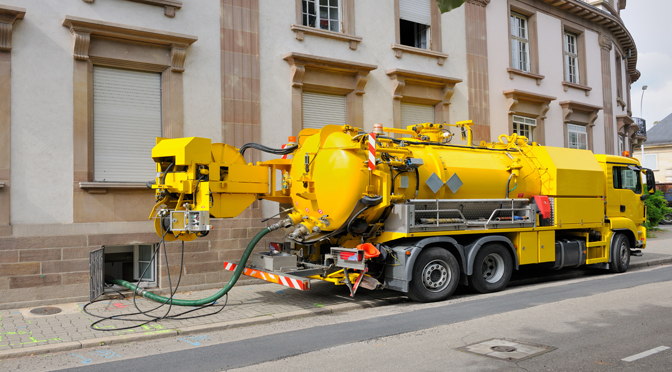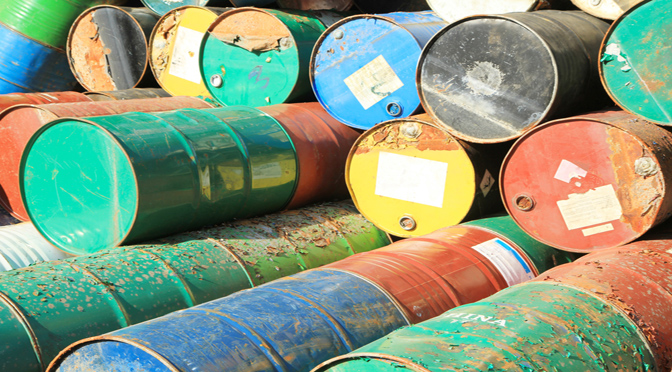
Liquid Waste: The Forgotten Foe
There are many forms of waste in the world. While the waste we throw away in our bins or recycling is usually at the forefront of our minds, it’s sometimes easy to overlook other harmful variations. Liquid waste is one of these and as well as being incredibly harmful to the environment if not disposed of properly, it is also very common to find in our everyday lives.
What exactly is liquid waste?
Liquid waste is fluids such as wastewater, oils, fats and hazardous household liquids that cannot be disposed of in the normal way. It can be categorised into hazard and non-hazardous waste however both kinds can be harmful to the environment. If it is hazardous, it will usually contain chemical or toxic substances that can be harmful to the earth and when they come in contact with animals or humans.
Where’s it usually found?
Liquid waste is found in a variety of different industries but most commonly in the agricultural, commercial cleaning and waste disposal industries.
Manure, which releases harmful methane gases that have been proven to contribute to global warming, is classified as a liquid waste as is any liquid residue from pesticides and fertilisers used to treat crops. Water collected from drainage systems or after floods is also categorised as liquid waste as it is unclean and can contain harmful components. Oils, fats, grease and foods that enter our water are also problems and are difficult to remove without the right techniques, causing them to often clog up drains and pollute water sources.
The most common form of liquid waste that affects our daily lives is from effluence drained from our toilet and bathroom systems. For waste to be defined as ‘liquid’ it must contain less than 20% solid materials.
How do we dispose of them?
Standard landfills and transfer stations won’t accept liquid waste, leaving us with a problem as to what to do with it. There are many specialised treatment plants that deal with different kinds of liquid waste as well as waste management companies that will remove liquid waste from your premises for you and dispose of it correctly and ethically.
Sewage plants are found dotted around the country and have a very important role in managing and filtering out contaminants from household effluence and waste. The modern sewage plant was first developed in the early 20th century and helped to drastically lower the amount of waterborne diseases that devastated many communities around the world. Nowadays, sewage plants are used to break down waste in water through dilution, mechanical treatment, biological treatment and chemical treatment.
What can we do ourselves at home?
A large problem which can be dealt with very much at the source is liquid waste in the form of fats, oils and grease (FOG). These cause many problems with blocking up pipes and flooding, and are the culprit behind many sewage and water emergencies that cost the industry millions of pounds and even contribute to rising water bill costs. The easiest way to prevent such emergencies is for everyone to be a little more wary of what we are disposing of down the sink. Never drain hot oils and grease down the sink as when they cool, they solidify and cause barriers in the pipes. Oil is also very viscose meaning it does not combine well with water molecules, instead forming a filmy layer on top. In commercial businesses such as restaurants or factories where oil and fats are used and disposed of regularly, they should use a specialist waste management service to dispose of them properly instead of dealing with it irresponsibly themselves.
Re-refining oil for other uses
Liquid waste in the form of used oils can be repurposed for other uses in a process known as restoration. This is when the oil is re-refined and can usually be restored back to 75-80% of its original state. When it is refined, chemical impurities, heavy metals and dirt are all removed making it safe to reuse again and effectively ‘like new’. There are five basic refinery processes and the oil may go through all or some of them multiple times to make it safe to use. This process of refinery is used on both industrial and automotive oils and is a better option than recycling as it removes impurities and makes the oil better quality and therefore less of a pollutant.
It is important for everyone to understand what liquid waste is and how the world is trying to reduce the amount of harm it can cause. While much of the management of it has to be done on an industrial scale, we can also help out by being safe and responsible in our recycling and waste management at home and in our businesses. Avoid pouring harmful chemicals and oils down the sink and always employ a specialist contractor for large amounts of liquid waste- they will dispose of it correctly and will save you money in the long term by preventing problems like blocked drains and polluted land and water systems.

